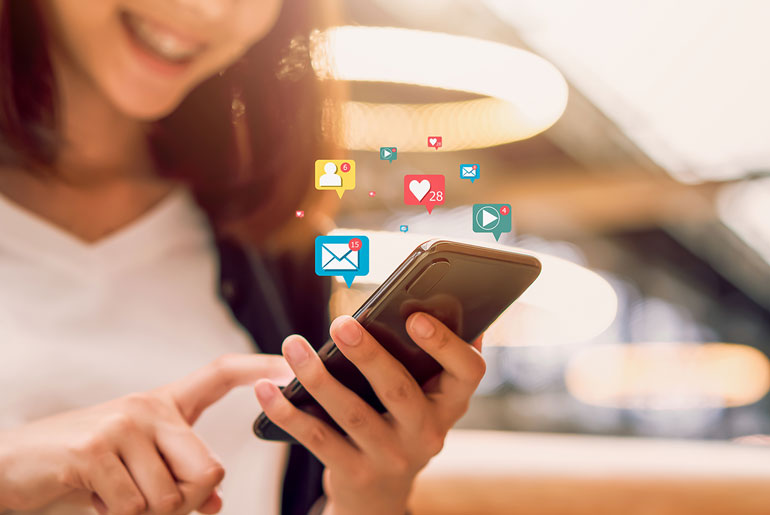Excessive social media use among university students has been linked to a decline in their mental health. Research indicates that problems associated with this behavior range from depression and low self-esteem to even a phobia of being away from their smartphones. An online survey involving 622 university students from China, Taiwan, and Malaysia revealed that those who excessively used their smartphones and social media were more likely to experience mental health conditions. Specifically, students reported greater levels of nomophobia (fear of not having an operating smartphone) and weight-related self-stigma, leading to low self-esteem, low confidence, and negative emotions.
Another study involving 380 students from Malaysian universities found that high levels of social media use were associated with greater levels of depression, anxiety, and stress. In both studies, participants spent an average of over 4 hours a day on social media, with a significant portion at risk of social media addiction.
Young adults are particularly susceptible to the negative impacts of social media, given that they are the most extensive users of these platforms. However, it’s important to note that not all effects of social media are bad. Social media can also have mental health benefits, such as helping individuals express love and compassion, expand their social networks, overcome loneliness, and foster a sense of belonging, especially for those who cannot physically interact with loved ones.
Excessive social media use is characterized by individuals being unable to control their urge to use social media, often to the detriment of other areas of their life, such as work productivity. The Bergen Social Media Addiction Scale, a six-item self-report scale, is used to measure social media addiction, with a score of 24 or above indicating a problem.
To address these issues, it is essential to promote healthy social media use and raise awareness about the links between excessive use and mental health. Transparent information about these connections should be widely shared. Individuals can self-assess their social media use with tools like the Bergen Social Media Addiction Scale. Governments and institutions can provide programs and workshops to help people manage their social media use, such as lifestyle redesign programs, stress coping strategies, time management techniques, and cognitive behavioral interventions. Additionally, camps and workshops can introduce participants to alternative activities that can replace unnecessary social media use and promote healthier lifestyles.
Disclaimer:
The information contained in this article is for educational and informational purposes only and is not intended as a health advice. We would ask you to consult a qualified professional or medical expert to gain additional knowledge before you choose to consume any product or perform any exercise.







